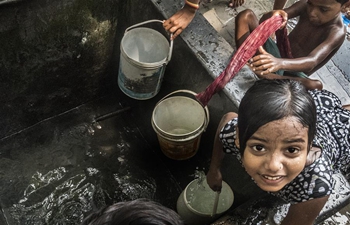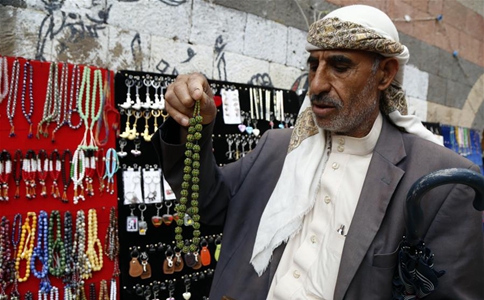NAIROBI, May 23 (Xinhua) -- A Kenya-based conservationist said that saving the northern white rhino from extinction can be done scientifically.
Richard Vigne, managing director of Ol Pejeta Conservancy that provides sanctuary for some of the region's most endangered species and is home to two of the world's remaining northern white rhinos, said on Wednesday that the species can be saved from extinction methodically using the last two remaining females that have found refuge at the sanctuary.
"In order to prevent the extinction from happening in totality, the only way it can be done is through in vitro fertilization (IVF)," Vigne told Xinhua in Nanyuki, in central Kenya, on the sidelines of the launch of the world's first conservation technology lab.
"There have been a number of successful attempts to remove eggs from zoo-held southern white females and it is hoped that an ovum pick-up attempt will be made on the last two remaining northern white females soon," he said.
"It is complicated, very expensive but possible, and will require the removal of eggs from the ovaries of the two females to be fertilized using semen stored from males over the last few years to create viable mature embryos for storage in liquid nitrogen," Vigne added.
He said once this has been achieved, a technique will be used to reintroduce the embryos into a surrogate southern female, because the two northern females are infertile, with the aim of achieving pure-bred northern white pregnancies.
The conservationist said to that end, Ol Pejeta has begun preparing the herd of six southern white rhino females that will act as surrogates for the northern white rhino embryos when they are ready.
"Then we have to create a breeding herd of northern white rhinos which will provide a platform for the introduction of that species," he said. "We are working with various partners in South Africa and in Europe and we are waiting for permission from the Kenya government to start to remove eggs from the two remaining females here."
"The effort will cost a huge amount of money, but is a noble effort to reverse at least one of the wrongs that mankind has wreaked upon other species that inhabit this planet with us," Vigne said.
The procedure is fraught with difficulties but will remind mankind that if you get down to the last two of a species, the chances of recovering that species that represents millions and millions of evolution is laborious, he said.













